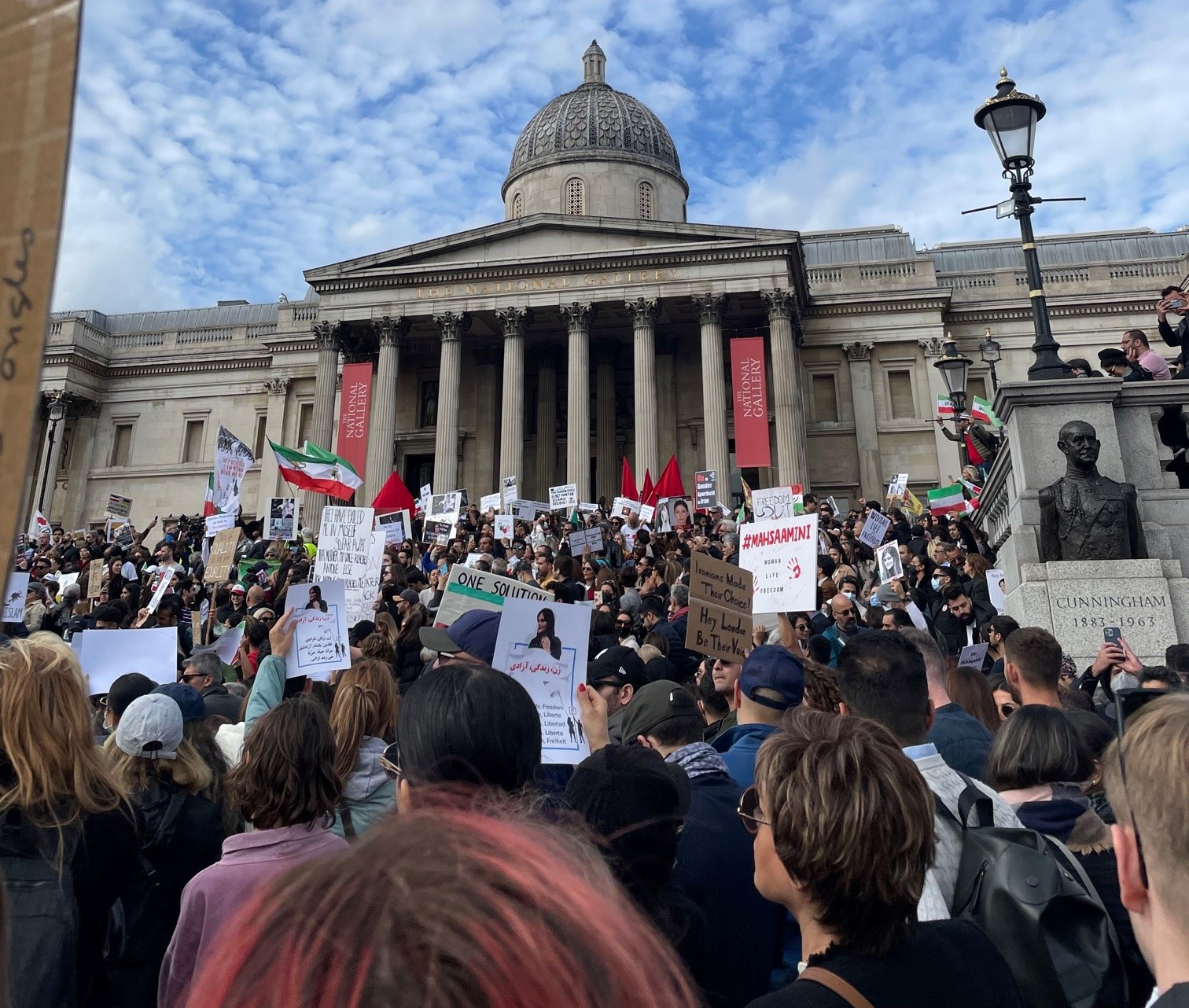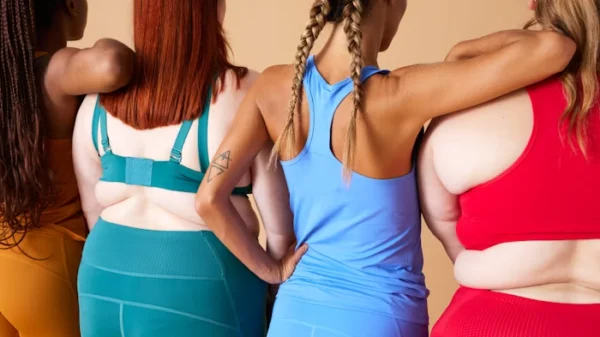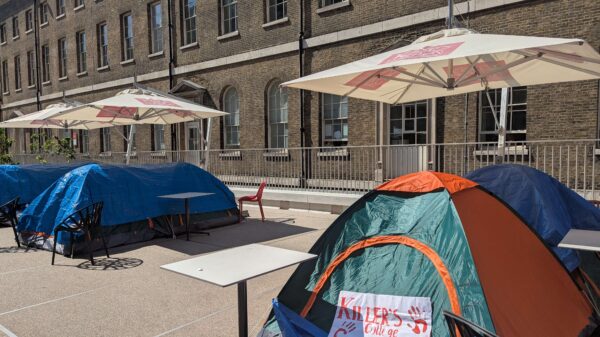Features Editor Naz Karadede on how Mahsa Amini’s death inspired women in Iran and across the world to stand up for their freedom and rights.
London, Saturday the 1st. Hundreds of people – Iranians and non-Iranians alike – have gathered at Trafalgar Square. The protest is about the death of Mahsa Amini, who tragically died just two weeks ago, on September the 16th, at the hands of the Iranian ‘morality’ police. It is one of many protests taking place in Europe, and globally, in solidarity with Iran. I am among them, chanting the same slogans as everyone there: “Women, Life, Freedom” and “Say Her Name; Say Her Name: Mahsa Amini!”
The atmosphere is peaceful, but powerful, nonetheless. People are angry, as they have a right to be. This is not the first time Iran’s infamous and equally as controversial ‘morality’ police, known as the ‘Guidance Patrol’ have been in the spotlight for their brutal treatment of women, particularly those deemed to be wearing something ‘improper’ or going against government laws for women’s dress code. Only this time, it’s at the expense of a young woman’s life.
Amini was just 22 years old when she was detained by the police in Tehran for not wearing her hijab ‘properly’. Under Iranian law, women who don’t wear the hijab in public, wear it ‘improperly’, wear excessive make-up, jewellery or ‘Western style’ clothing can be punished by a prison sentence, flogging, or fine. Women and young girls are frequently stopped by the morality police on the streets if they are seen to be wearing something ‘unsuitable’, followed by verbal insults and, in most cases, physical assault and coercion.
Just three days after her detention, Mahsa was reported to be dead. Eyewitness accounts report that she was beaten by the police in the van that she was detained in, resulting in a coma and her subsequent death. However, the Iranian police have denied any involvement in Amini’s death, attributing it to sudden ‘heart failure’, despite no prior medical conditions.
Mahsa’s death provoked widespread demonstrations across Iran, starting with women protesting their country’s rigid and strictly enforced dress laws on the day of Amini’s funeral. The protests then developed to wider demonstrations against the Islamic Republic, considering that the country’s Supreme Leader, Ali Khamenei, has openly praised the morality police’s purpose and methods in the past. Police crackdown on the protestors has been just as brutal. Iran Human Rights, a Norway-based human rights organisation, has recorded the death of 76 people since the start of the protests in Iran, including news reporters and children. More than 1,200 people have also reportedly been arrested.
Human rights organisations, such Amnesty International, have not only condemned Mahsa’s death as an infringement of women’s rights, but have also criticised the violence towards demonstrators as an assault on the civil right to protest peacefully. Iran Human Rights has condemned the government for using “disproportionate force” and “live ammunition” towards protestors. Similarly, Amnesty called for the Iranian government to repeal the laws that “perpetuate violence” towards women and young girls and “strip them of their right to dignity and bodily autonomy” by violently punishing them for their clothing.
However, those who view the demonstrations solely as a protest of Iran’s hijab laws are missing the wider point. The protests are not against the hijab but against the violent enforcement of it. Women across the world are not protesting for the right to abolish the hijab, but the right to choose. To choose what to wear. The fact that protests are taking place in France, in solidarity with Iran, where women once protested for the right to wear a headscarf shows that the issue is not with Iran or the Middle East. It’s with institutions limiting the rights and freedom of women by telling them how to act, what to wear, what to do with their bodies, and when to do it. It’s with the excessive violence towards women. It’s with the unjustifiable murder of women and their dehumanisation.
And this is not constrained to the Middle East, contrary to what popular opinion would have us believe. The overturning of Roe v. Wade just a few months ago has shown us this.
Mahsa’s death became a symbol, internationally, that the struggle for women’s liberty and human rights is not over yet. And the subsequent protests have shown that laws and institutions limiting women’s rights are generally reflective of underlying issues of oppression and violence in a society.
Regardless of your opinion on the Islamic Regime in Iran, one cannot deny that the unlawful death of an innocent woman – a person – is cause for protest and outrage. The death of a child, a sister, a friend. And that’s what the hundreds of people, including men and children, were protesting in Trafalgar Square that day. For with their slogans shouting “Women, Life, Freedom”, they knew that there can be no life or no freedom in a state without life and freedom for women.
















